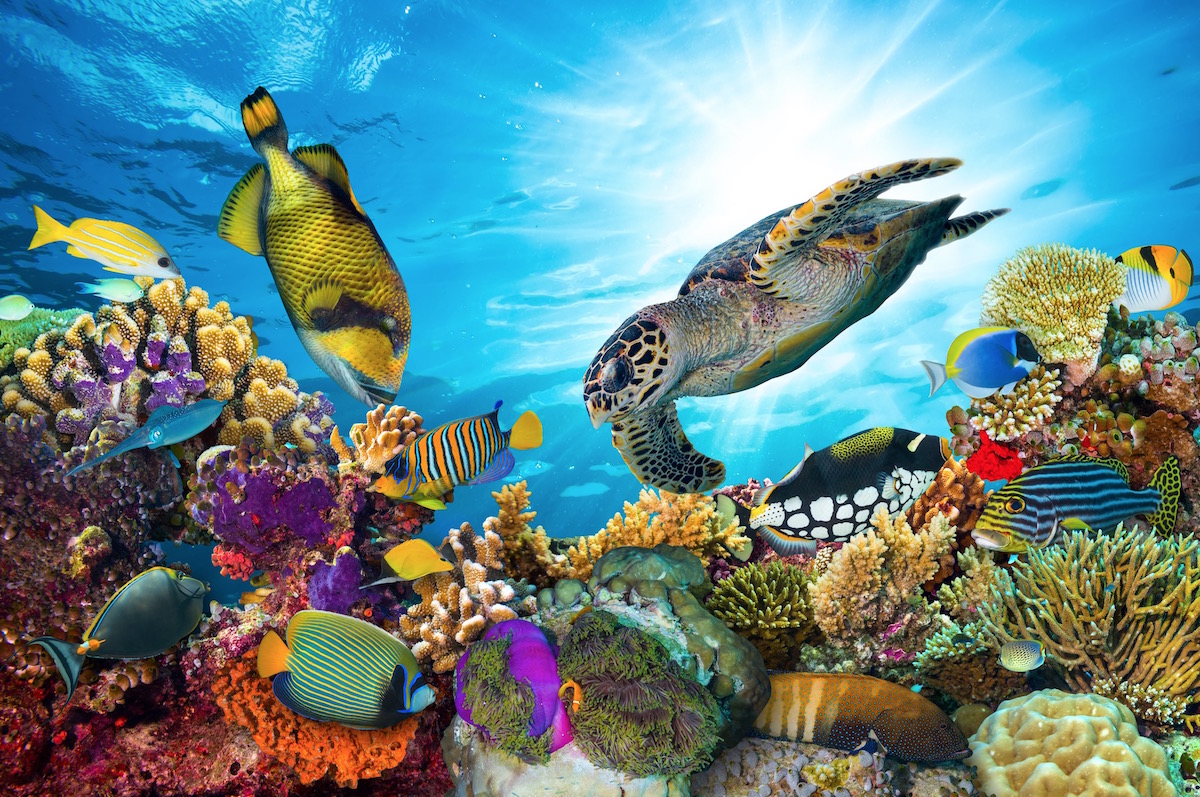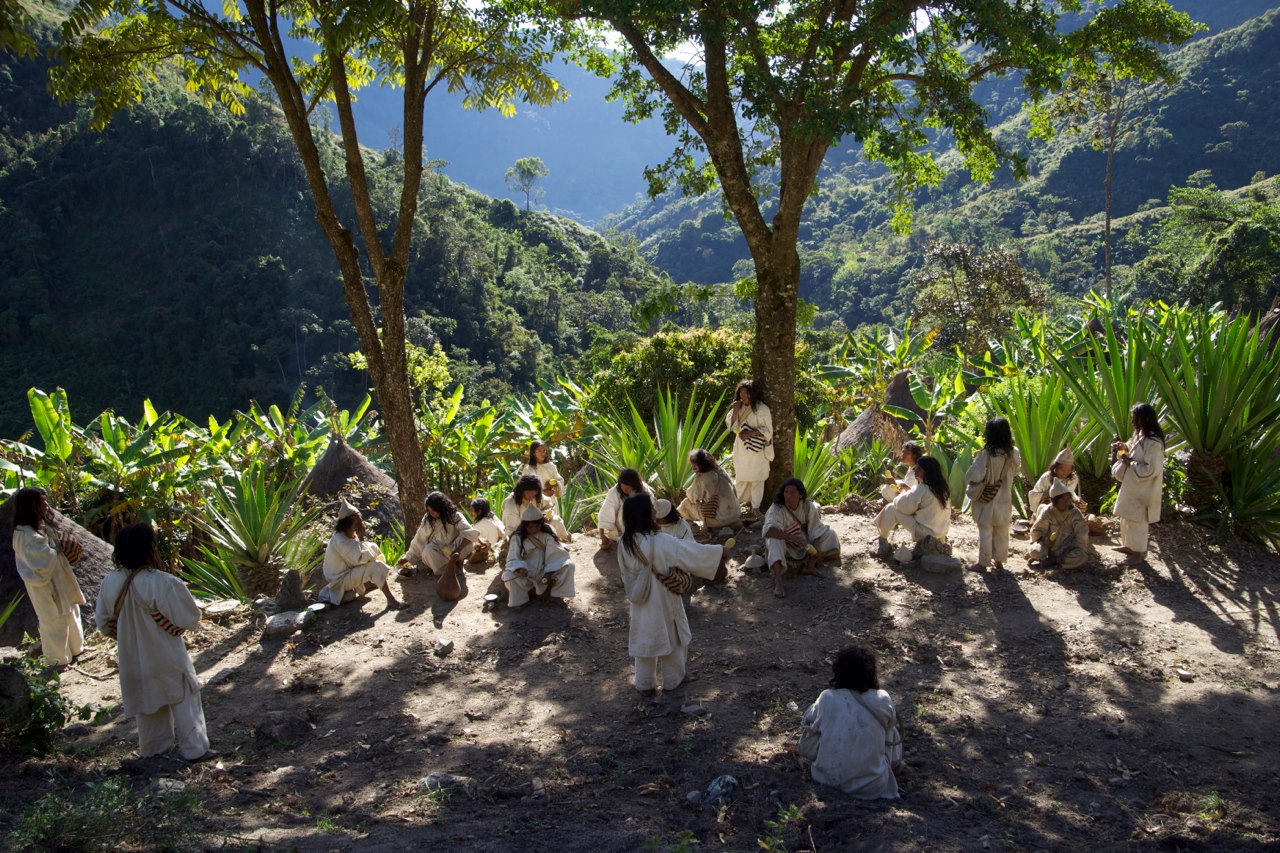When we hear everything that is wrong on our planet, it really feels good to watch a video that shows some nice progress made in 2018. We have so much in hand to do the right thing, it is well worth the effort to get the balance back in place. And each of us is a stone in the building….
For example, in Belize, oil exploitation is now prohibited in its waters.
In Pakistan, the Indus dolphin population is increasing. 1816 individuals in 2017 compared to 1200 in 2001.
In Brazil, the government will no longer finance hydroelectric dam projects on the Amazonas River.
In England, plastic microbeads in cosmetics, such as exfoliants that poison fish, have just been banned.
In France… and Switzerland, the bearded vulture that had disappeared from the Alps has been successfully reintroduced since 1985 and counts today 300 individual. It is the second largest bird after the condor with a width of 2m and a yellow colour (What is beautiful is that a very good friend of mine, Virginie, saw one just the other day turning in front of her house just the day before her daughter was born).
In India, the population of the Asian lion living in the Gir forest has increased in 55 years from 100 to 600 species.
Singapore has just banned shark fin soups ! 3800 restaurants and schools are concerned. Shark-fishing for this soup is also responsible for a great overfishing of multiple shark species!
In Brazil, 61 companies are committed to the protection of Cerrado, much less well known than the Amazon, but representing 1/3 of the country’s biodiversity.
Russia has just created the largest land and marine reserve in Siberia. A total of 6 million hectares, including 5 hectares of marine area. Seals, belugas, walruses and many other animals are concerned.
Portugal produced more renewable energy in March 2018 than is needed to supply the country with electricity. 103% of electricity was generated by wind turbines and dams. This prevented it from emitting 1.8 million CO2 into the atmosphere.
In Congo, following their National Ivory Action Plan programme, within a few weeks, 10 arrests of ivory traffickers have been made and several tens of kilos of ivory have been intercepted.
In New Zealand, following their desire to use 100% renewable energy by 2030 and being carbon neutral in 2050, has prohibited all future oil and gas development in its waters.
In Mexico, jaguars threatened with extinction have increased by 20% in 8 years, which is an increase of 4800 indivuals.
In Colombia, the Amazonian forest now legally has the same rights as a human being. The country’s highest court of justice has ordered the government to protect the forest by recognizing it as an entity with rights.
In Madagascar, after losing 20%, volunteers replanted more than 900,000 mangroves in order to stabilize the swampy system in coastal areas. 8,000 hectares of mangroves are protected and 150 hectares have been restored.
The Australian government is investing $379 million to protect the Great Barrier Reef. The largest investment in this country in the country’s history. The money will be invested in preserving water quality and fighting the purple acanthaster, an invasive species that attacks corals.
Bombay in India banishes single-use plastics. Those who continue to use it will be reprimanded with a fine ranging from 80 to 400 Euros.
In Indonesia, deforestation decreased by 60% in 2017.
In New Caledonia, all virgin coral reefs have just been sanctuarized. It is therefore a reef spared from pollution and overfishing, even global warming. This represents 1.5% of the world’s coral reefs, a third of which are in New Caledonia. These pristine coral reefs are now classified as nature reserves.
In Canada, the government is attacking pesticides that are harmful to the ecosystem and bees. Within 3-5 years, they will remove 2 harmful products from the market: clothianidin and thiamethoxam.
In Yellowstone, the 700 grizzly bears living there continue to be protected.
In England, renewable energy production has tripled in 5 years, while coal-fired power generation has decreased by a third. Fossil fuels have therefore a lower productivity than renewable energy and all British carbon factories are expected to close by 2025.
China has once again banned trade in rhino horns and tiger bones.
In the oceans, the second largest mammal after the blue whale, the fin whale, is no longer an endangered species. It is estimated that there are 100,000 individuals worldwide.
Translated with www.DeepL.com/Translator





